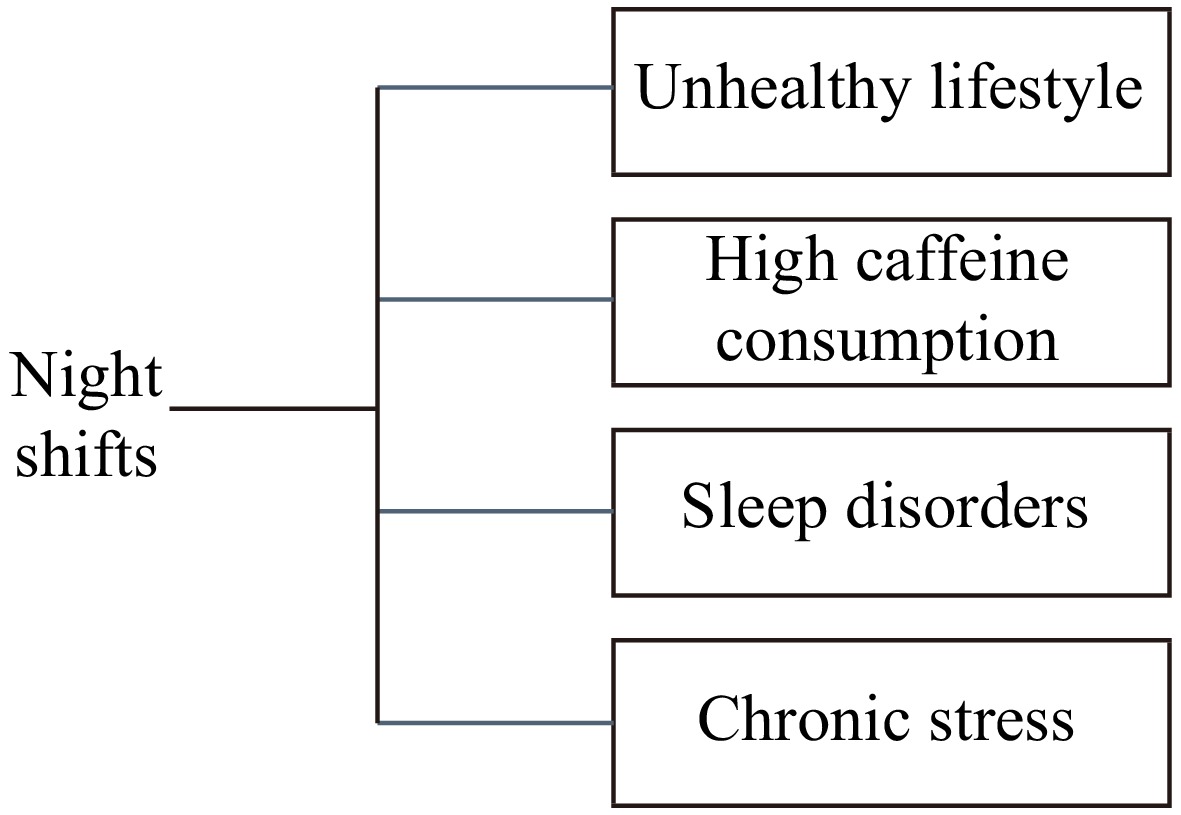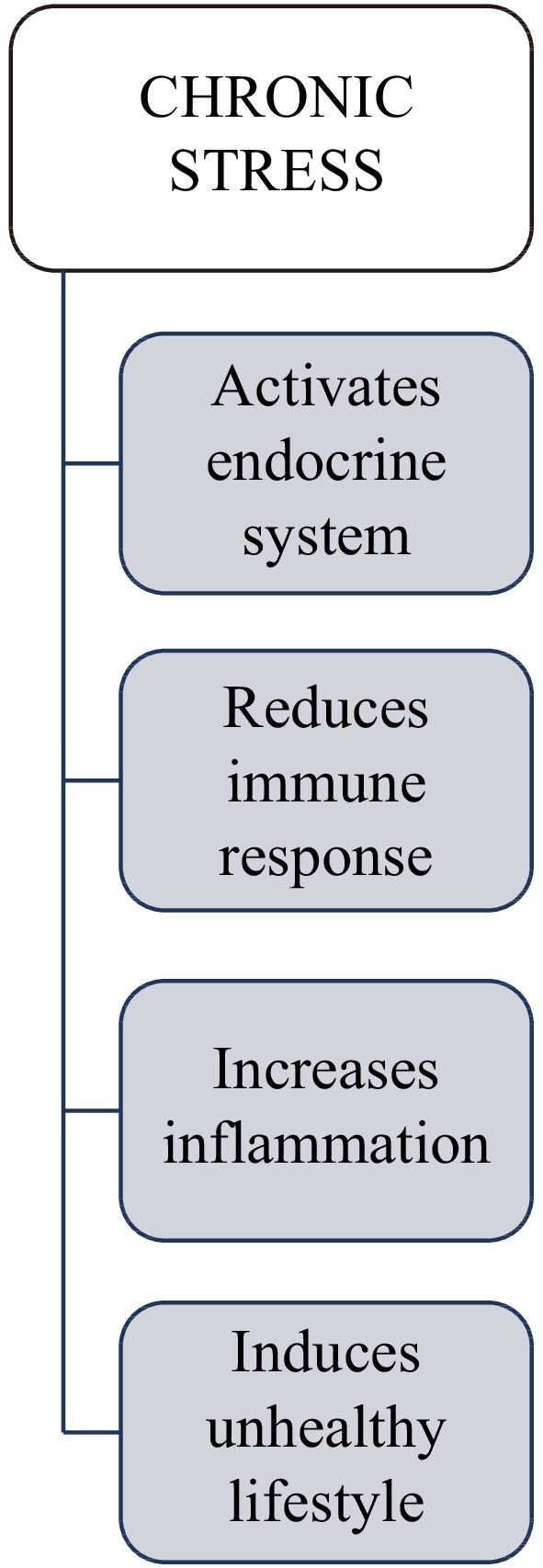-

Figure 1.
Effects of night shifts on healthcare workers.
-

Figure 2.
Effects of chronic stress on health.
-
Reference Population Results Phillips et al.[34] 182 nurses Caffeine use was high with 92% of nurses in Korea, 90.8% in Italy and 88.1% in the US. Okechukwu et al.[37] 22 nurses CaffEQ score was 2.69 on a scale of 1−5. Higbee et al.[38] 476 nurses Energy drinks consumption 107 subjects (22.5%), caffeine only consumers 299 (62.8%), non-caffeine consumers 70 subjects (14.7%). Mattioli & Sabatini[41] 500 undergraduate
medical school students24% students reported that an increase frequency and quantity of energy drinks consumption. Higbee et al.[36] 272 nursing students Nursing students who consumed energy drinks reported poorer sleep quality, fewer sleep hours, and higher levels of perceived stress than caffeine-only consumers and non-caffeine consumers. Table 1.
Perspective and cohort studies on caffeine consumption in healthcare personnel and nursing students.
Figures
(2)
Tables
(1)